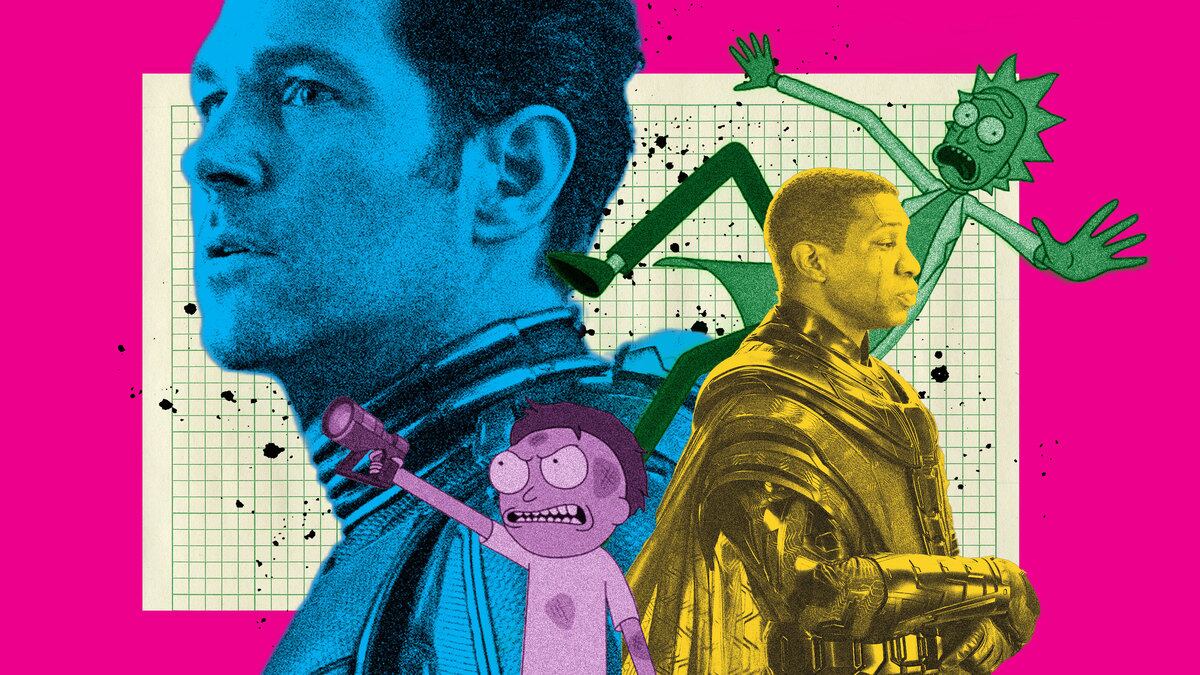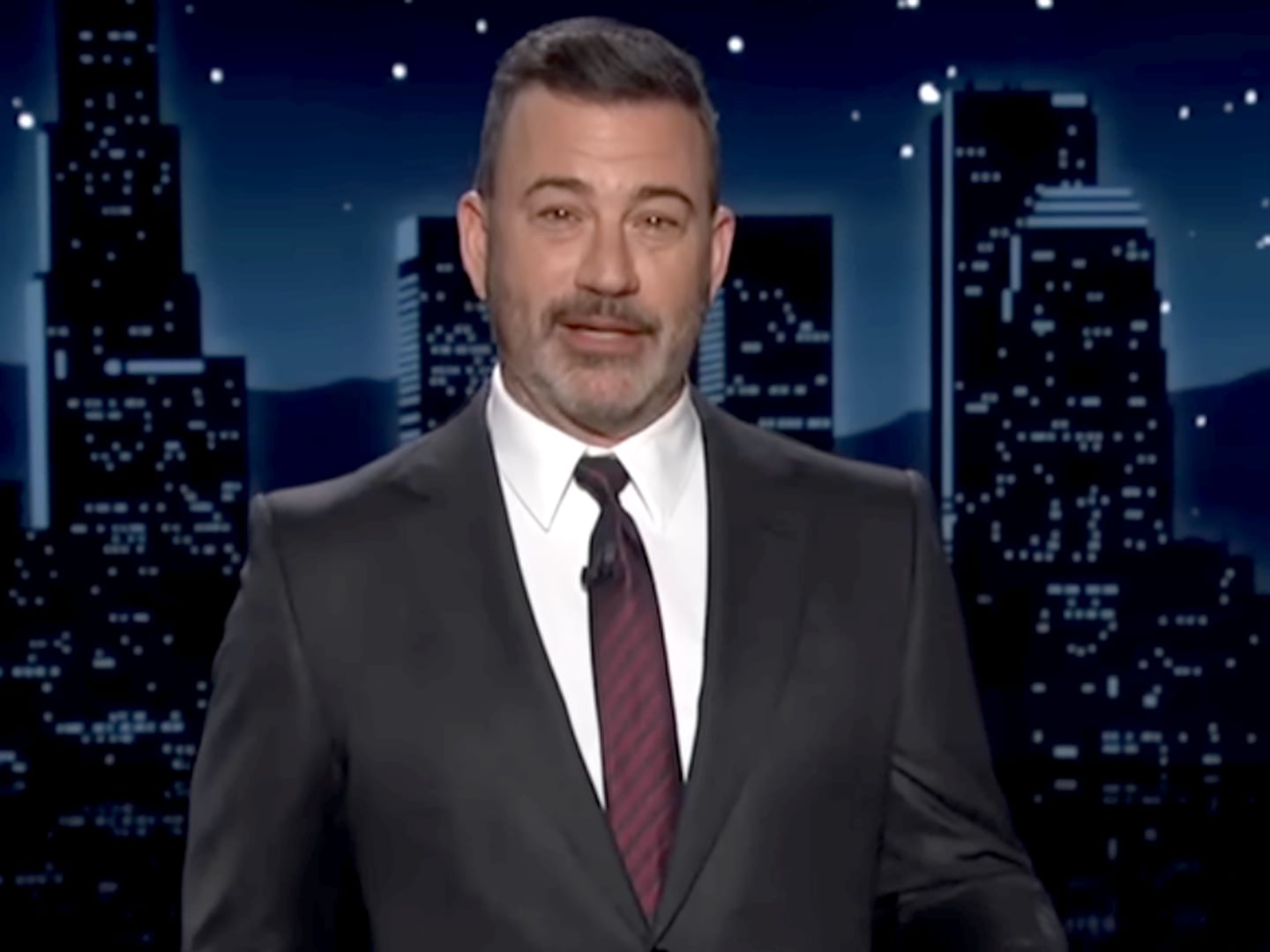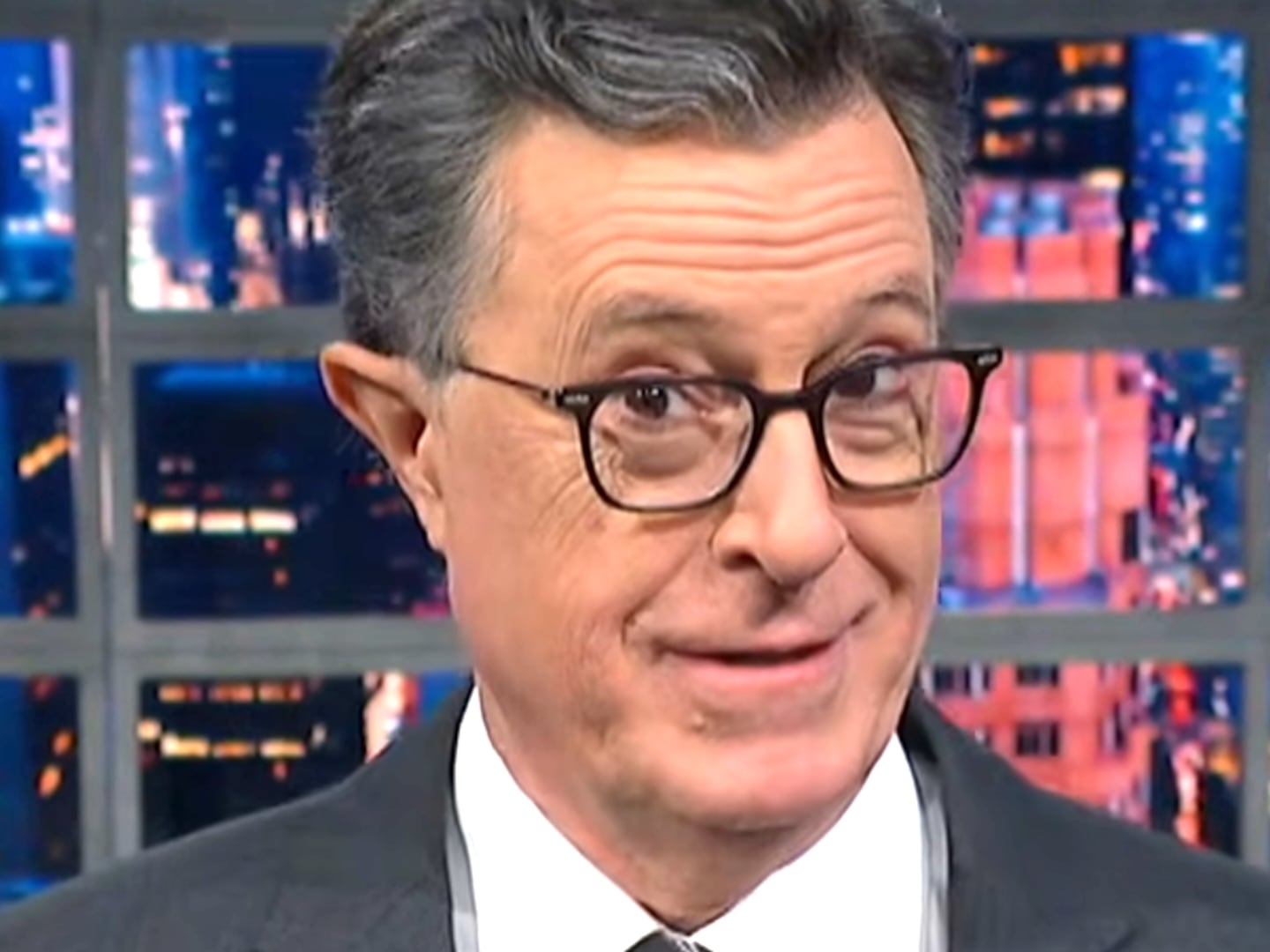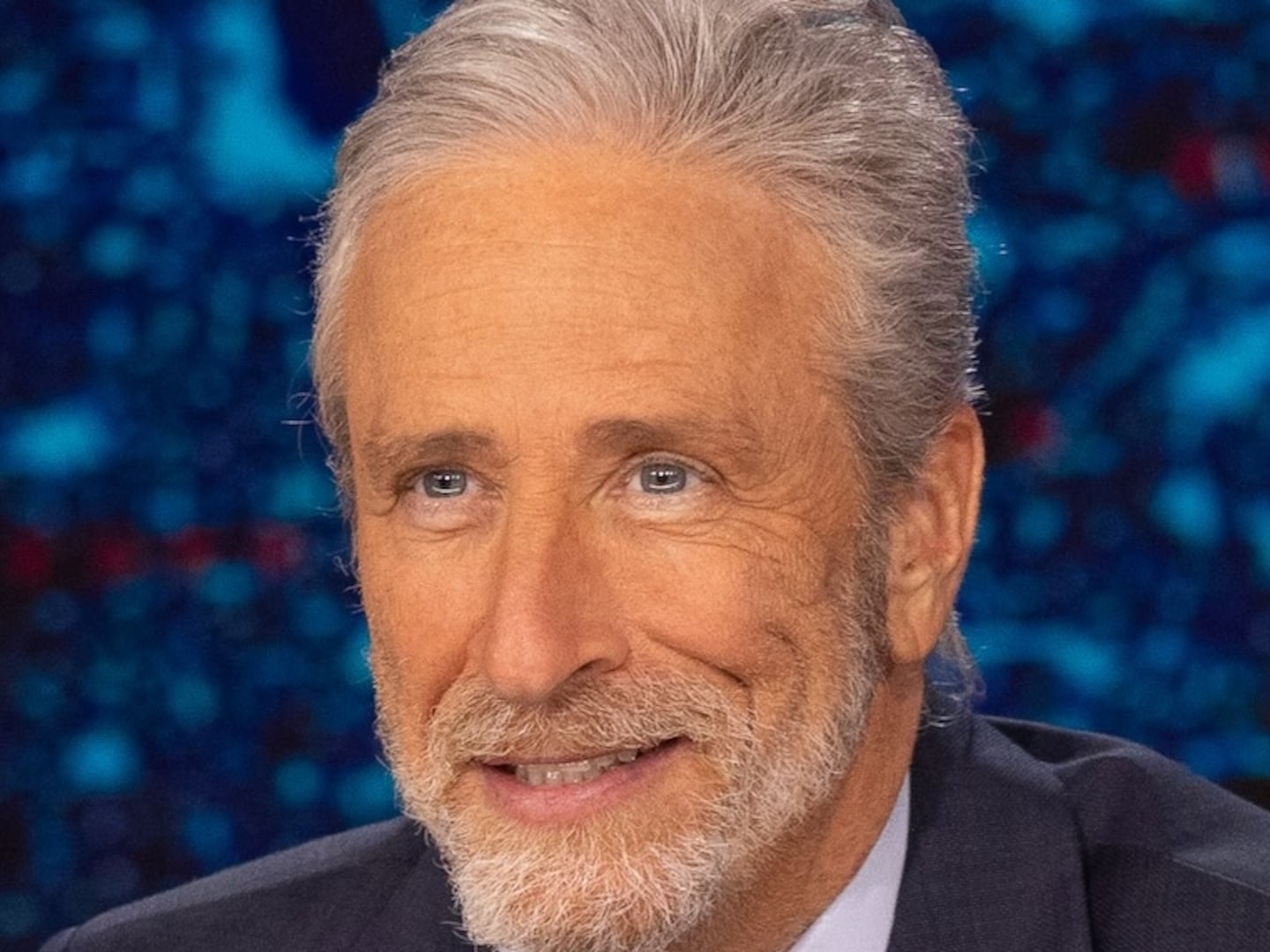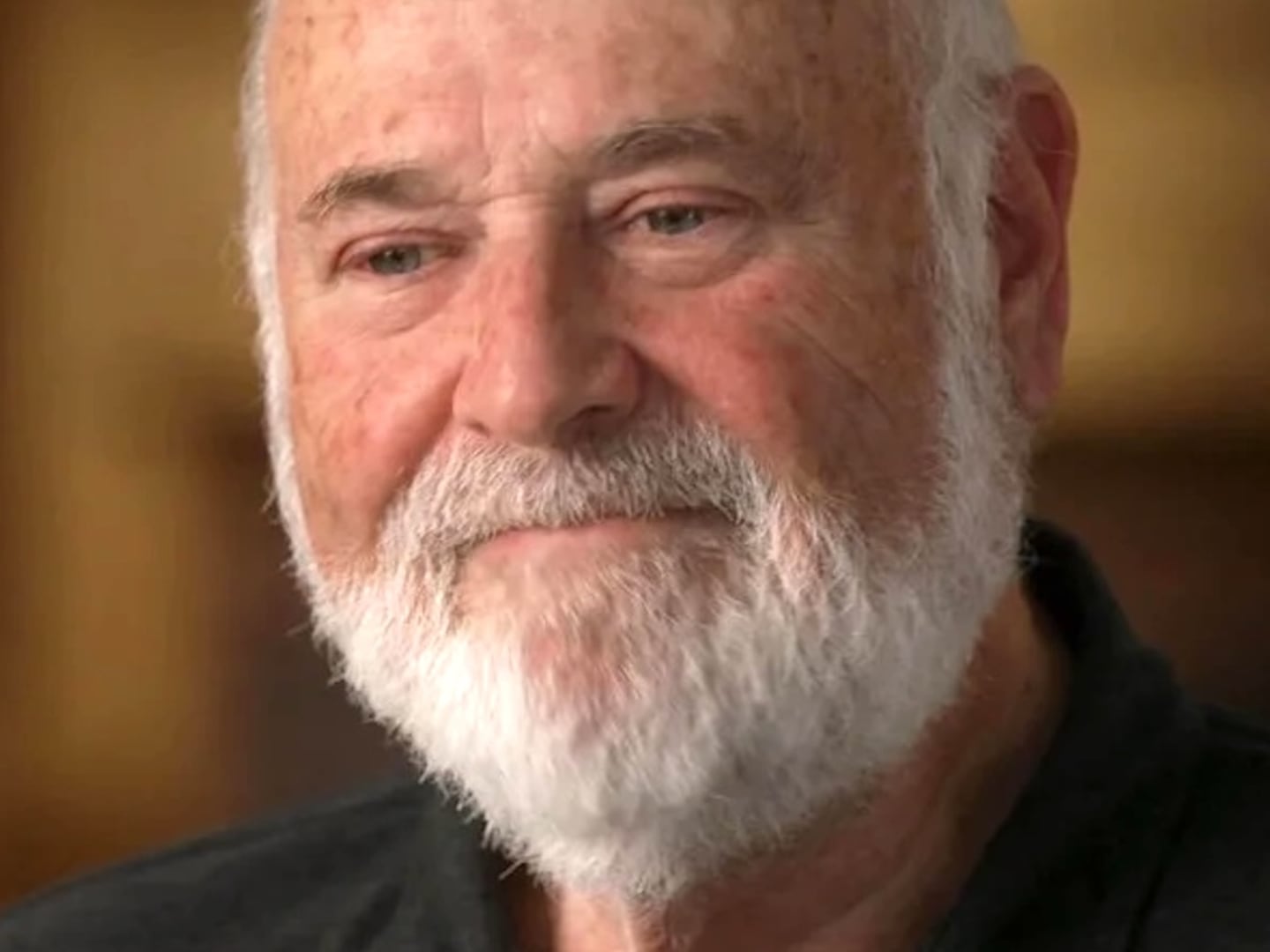Just two short weeks after its release, Ant-Man and the Wasp: Quantumania has made Marvel movie history: It suffered a franchise-worst box office drop between its first and second weekend in theaters. Despite making $105 million during its first weekend—good but not great for the MCU—the third Ant-Man film made a not-so-nice 69 percent less money at the box office in weekend No. 2, earning a total of $32 million over the period.
All this talk of box office receipts is usually only of interest to movie industry nerds, but when it comes to Marvel even the most niche topic can become a matter of national concern. And combined with Quantumania’s poor critical response (the franchise’s second-lowest Rotten Tomatoes score, at 48-percent “rotten”), the movie’s relative failure by standard metrics is giving people pause.
That even includes the film’s writer, Jeff Loveness.
“To be honest, those reviews took me by surprise,” Loveness told The Daily Beast in an interview, a week after Quantumania’s release. “I was in a pretty low spot… Those were not good reviews, and I was like, ‘What the …?’”
Loveness made his Marvel debut with Quantumania, which is a huge step to take for a first-ever feature film script. To go from Jimmy Kimmel Live! staff writer to Rick and Morty Emmy-winner to member of the MCU cabal is an impressive feat. But it feels a little less impressive when that movie is dragged across the coals as much as Quantumania has been. (Our own publication called it “a chore of diminishing returns.”)
“I’m really proud of what I wrote for Jonathan [Majors, who plays the villain Kang the Conqueror] and Michelle Pfeiffer [scientist Janet Pym],” said Loveness. “I thought that was good stuff, you know? And so I was just despondent, and I was really sad about it.”

But there’s something funny about review scores and box office grosses: They each tell their own side of the story. And as any moviegoer knows, rarely is any drama so black and white.
“I went to [a showing]” of the movie after the reviews were in and the movie was out, the writer said. “And an audience was laughing, and it was one of those Sullivan’s Travels, ‘watching the movie with the prisoners’ moments.” Like the character in the famous Preston Sturges film, Hollywood comedy hotshot John Sullivan, Loveness found that the movie was accomplishing exactly what he set out for it to do—even if the industry wanted him to believe otherwise.
Despite Quantumania slotting into the Marvel framework as this week’s flavor-of-superhero flick, Loveness came at the film from a unique perspective. For one, his relationship with Marvel actually started nearly a decade ago via a more traditional route: Marvel comics.
After Jimmy Kimmel hired him out of college to be a staff writer on his late-night show—thanks to the popularity of, ironically, a Spider-Man-meets-Wes Anderson parody video he made in 2010—Loveness built up a hefty portfolio of sketch credits. That included a required “horrible product integration” that the writers were occasionally required to do, sponsored by Marvel Comics.
“I was like, Oh, I read those growing up. I know Marvel comics. No one ever volunteered [to write those sketches], so I'm like, ‘Oh, I'll do that one.’”
It just so happens that the Marvel staffer involved with that spon-con was Joe Quesada, a Marvel writer/artist-turned-Chief Creative Officer.
“We just kind of bonded,” Loveness said of Quesada. “And then he very nicely referred me to an editor over [at Marvel Comics.]” With that dream recommendation letter secured, Loveness went on to write comics for Marvel, DC, and other publishers. He wrote everything from full issues of Amazing Spider-Man to Superman shorts and his own quasi-biblical miniseries, Judas. “By the time I had gotten that call at Marvel and met them, I had written, like, 50 comic books.”
Intimate knowledge of comics seems like it should be a prerequisite for working on a Marvel project. But since Jon Favreau helped rewrite the history of superhero movies with 2008’s Iron Man, the average MCU writer has had decreasing overlap with the average Marvel Comics nerd. Not only does Loveness stand out among his new colleagues as the new guy, but he also is one of the first writers in quite some time to be pulled from a more comic book-heavy background. Consider that the two preceding Marvel movies were written by a Cannes-celebrated USC film school grad and a recent Oscar winner.
But what Loveness does have in common with many of the less-well known MCU creatives is his comedy background. Loveness worked on Seasons 4 and 5 of Rick and Morty—making him just the latest Dan Harmon TV show expat. Other alumni to make the Marvel jump are Jessica Gao of She-Hulk, who wrote the famed Rick and Morty episode “Pickle Rick,” and most notably Anthony Russo and Joe Russo, the dudes who directed a bunch of great Community episodes and went on to helm, among other things, Avengers: Endgame.
Comedy has become a core part of the MCU, injecting a levity into the franchise that older superhero movies (and modern ones from its main competitor, DC) lacked. And watching Quantumania feels, in some ways, like watching an extra-long, extremely expensive, live-action Rick and Morty episode. It’s got bizarre, ugly aliens; it’s got foreboding, unwelcoming extraterrestrial locales; it’s got sci-fi nonsense that makes less and less sense the more time you spend thinking about it; and it’s also got jokes about people’s holes.

“I’m guessing the shorthand multiverse knowledge helped [me get the job], because that’s in the wheelhouse of Rick and Morty,” Loveness said. The Adult Swim cartoon is also, he suggested, what’s “en vogue” for comedy right now.
But Loveness felt more emphatic about the importance of his diverse other comedy inspirations, in terms of what he could bring to the table.
“I actually tried to make [Quantumania] feel more like a throwback ’90s adventure comedy than anything. I wanted it to feel like the way Men in Black is funny and goofy, but it also has real stakes and real character motives.” He also cited The Princess Bride and Jumanji when talking about its tone, as well as Steve Martin’s Father of the Bride—and the fact that Ant-Man star Paul Rudd is, in his own lovable way, a modern-day Robin Williams.
Other influences of note are perhaps more surprising. Loveness referred to the character MODOK (Corey Stoll), the big-headed, tiny-bodied villain who’s one of Marvel’s most notoriously off-putting characters, as something of a mash-up of George Costanza, Death of a Salesman’s Willy Loman, and Kevin Kline in A Fish Called Wanda—a unique combo that says a lot about his comedy leanings. He also talked in great detail about how MODOK pulls a lot from Frank Grimes, the antihero of the incredible (but controversial) Simpsons episode “Homer’s Enemy.” As smart as that episode is, we also gushed about our love for its silly jokes about living in an apartment sandwiched between bowling alleys.
“I just miss gags in movies that were unabashedly dumb,” Loveness said of his goal with the film’s comedy strains. “I like movies that had big gags and weren’t trying to be super-grounded all the time. I think ‘grounded’ is the most overrated word in comedies … Like, I don’t give a shit. I wanna see movies that have jokes and funny characters and heightened situations.”
Still, the Rick and Morty of both Quantuamia and Loveness’ career is unignorable. After all, in 2020, he won an Emmy for co-writing Season 4’s masterful “The Vat of Acid Episode.” That particular episode plays with the humor, horror, and emotion that can come from messing with the multiverse, something core to the MCU’s heart at the moment. “It’s very simple, but it has a lot of complex stuff on top of it … I think that helped me get into Marvel mode.”
Rick and Morty and the MCU also share something else in common: intense fanbases. MCU fans can be portrayed as rejecting criticism of the franchise, to a hyper-defensive degree. Rick and Morty fans are sometimes painted by the media as loutish dudes, who clamor for McDonald’s sauce packets en masse and idolize an objectively terrible character in Rick Sanchez.
Speaking of objectively terrible: Loveness called recent reports about Rick and Morty co-creator Justin Roiland’s alleged sexual misconduct, and the circumstances leading to his firing from the show, “horrifying.” “I don’t even know what words to use, but it’s really disappointing and disgusting,” he said of the Roiland allegations. The reports also “got the story right” about Roiland hardly being around on a day-to-day basis, outside of voicing the characters, he added. “I think I saw him, like, six times [in a year and a half].”
But Rick and Morty is also “bigger than one person,” he said—something social media pundits and stans often fail to accept, about Rick and Morty, Marvel, politics, each other; you name it.
“I think we live in this era where we’re trying to label things so that we can all group ourselves into thoughts on Twitter together,” Loveness said. “I think we all need to kind of take a step back from this collective fandom that we have and just try to enjoy stuff for ourselves,” he added.
Which is exactly what Loveness did when he went to see Quantamania, still reeling from that rough critical feedback. As the audience around him started laughing at those jokes he worked on—from the ones that he admittedly pulled from The Simpsons to the deeper references to 1970s Marvels storylines—he had a realization.
“I’m like, ‘Goddamn! No, [the reviews] are wrong! I’m right! MODOK is great!’” he said of sitting in the theater with the laughing Ant-fans, who rushed to see the movie that opening weekend. That experience lifted a weight off Loveness’ shoulders. “I’m pretty happy with it overall, and I think I learned how to take a punch this week. And now that I learned that it’s not too bad, I can just get on with making things.”

